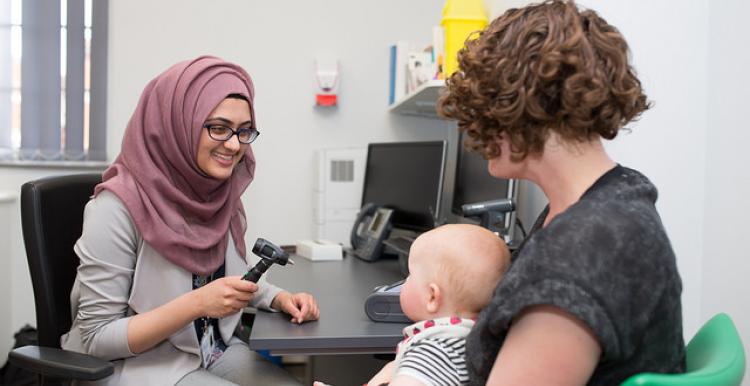Are you or your loved one waiting to get a GP referral? Share your views

We are supporting a national Healthwatch project to find out about people's experience of getting a referral from their GP to another NHS service.
GPs are the first point of call for many health issues and the gateway to specialist support.
Your GP can refer you to a wide range of NHS and other services, including:
- Scans or tests for a diagnosis of a condition or health issue;
- Mental health support;
- Surgery for knees, hips and eyes;
- Support like physiotherapy for back pain or arthritis;
- Non-urgent heart problems; and
- Wellbeing services, like smoking cessation or diabetes management
But with many GP surgeries stretched thin and under pressure, NHS decision-makers need to understand if some people cannot get the right help.
The referral from my GP to primary mental healthcare services took far too long.
We want to hear from you
As the independent champion of health and social care services in Peterborough, we want to hear your experiences of trying to get specialist NHS support, like physiotherapy, talking therapies, hospital scans and consultations.
By sharing your story as part of this national project, we can use your feedback to help the NHS better understand your challenges and improve how people access the care they need.
So, if you’ve got something to say about GP referrals, don’t just talk to your friends and family – tell us too.
What local people have told us
Almost one in three of the experiences local people share with us are about GP care — and this includes feedback about difficulties accessing a GP appointment.
Whilst people tell us that urgent referrals, such as those for suspected cancer diagnosis, are usually very fast.
"It takes a very long time to get through on the phone, but the referral was very quick and I had excellent service for my cancer."
We have heard concerns about delays for referrals to some services, including for diagnostic tests and mental health support. And some concerns about referrals not being made when they should have been, or of complex referral routes for some treatments.
Usually a good GP service but referral to MSK services (physio) are a black hole where no one responds or communicates.
The impact of delayed referrals
GP referrals affect people of every age group, every background, and every region across the country. Some of the things we’ve already heard include:
- People feel like their symptoms are dismissed;
- They have to try multiple times before they’re successful; and
- They are left in the dark about how serious their condition is.
What is a referral?

Your GP is often the first person you speak to when you have a health issue or symptoms you’re worried about. GPs and other health professionals at the practice are highly skilled and can offer medical advice, provide diagnoses and prescribe medicines for lots of common conditions.
And sometimes, your GP might decide you need to see another healthcare professional for specialist tests, treatment or care. When they request specialist tests or treatment on your behalf, this is known as a referral.
In most cases you need to see your GP or speak to a doctor at a hospital to get a referral to another NHS service. Although sometimes, other healthcare professionals, such as a nurse, can make referrals as well.
You can also sometimes self-refer to further NHS support, like mental health talking therapies.
What can you expect?
Unless you can self-refer, specialists will only see people with a letter of referral from their GP or a hospital doctor.
Your GP or the hospital doctor supporting you should:
- Discuss why they want to refer you and what tests or treatment they think should be carried out
- Provide choices of where and who you can be referred to, with information about the hospitals and doctors working there
- Give you information on the referral letter about how to make an appointment as each service uses different ways of arranging appointments.
What are your rights?
The NHS Constitution for England formally states that:
- People have the right to access NHS services
- People will not be refused access on unreasonable grounds
- People have the right to receive care appropriate to their needs and preferences
- People have the right not to be unlawfully discriminated against when trying to access services on grounds of gender, race, disability, age, sexual orientation, religion, belief, gender reassignment, pregnancy and maternity, or marital/civil partnership status
The Constitution also sets out that once you’ve been referred, you have the right to start some treatments within a specific timeframe. This time starts from the day your appointment is booked, or when the hospital or service received your referral letter:
- 18 weeks maximum for a first appointment for elective/routine/planned/non-urgent consultant-led treatment
- Two weeks maximum to see a specialist for suspected cancer
The NHS also states that in terms of choice and preference, you are entitled to ask for a referral for specialist treatment. However, the final decision will always be down to your GP or the hospital doctor responsible for your care. If you have been denied a referral you are also allowed to seek a second opinion from another doctor.

